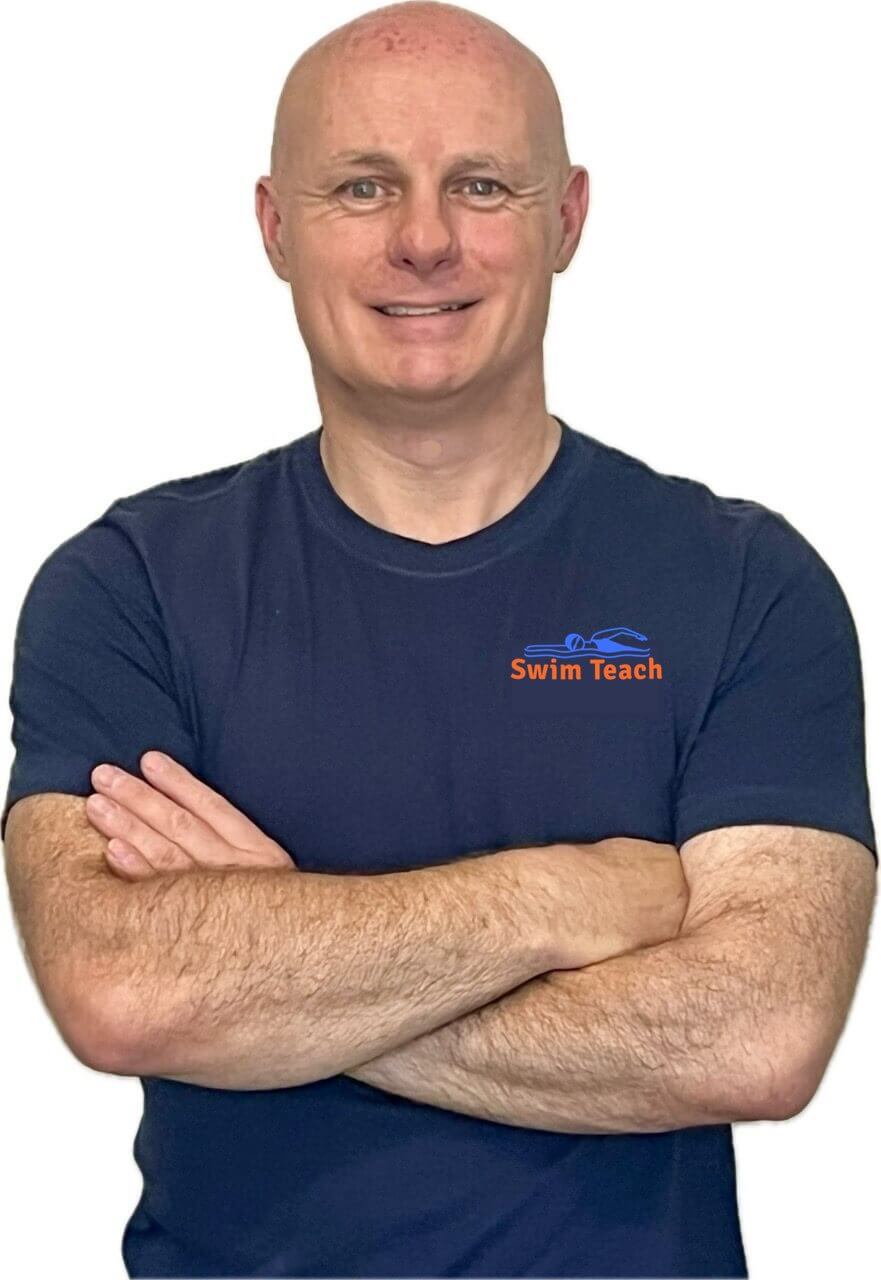- Swim Teach Home
- How Do I Float
- Why Do I Sink
Why Do I Sink When I Swim?
'Why do I sink?' - that depressing question you keep asking yourself. Summed up by the constant battle to keep your legs at the surface when all they want to do is go down. It's all made worse when another swimmer glides effortlessly past you like a duck on a pond.
There is a very good reason why some of us sink, and some of us float effortlessly. All is revealed in my 2-minute video below.
'Why do I sink' explained in a 2 minute video
'Relative Density' - The Reason We Sink
Are you still wondering why do I sink? Are you confused about 'relative density'? Allow me to explain in simple terms.
A stick floats and a rock sinks. The stick floats because its density is less relative to the density of the water. The rock sinks because its density is far greater relative to the density of the water.
In human terms, our fat is the stick, and our muscles are the rock. Muscles are generally denser than water and cause us to sink. Fat is less dense than water party because it contains oil, which floats on water. Therefore fat floats. Those of us with a higher fat to muscle ratio will tend to float. Yes, that's right, fat people float better than muscular people - generally speaking.
(I'm using fat and muscle as examples to keep things simple. It must be noted that our bones, organs, blood, and all that stuff contribute to our body's density.)
The average male has a density of 0.98g/cm3, and the average female 0.97g/cm3. Most human beings will float to a certain degree, and females generally float better than males.
FREE EBOOK: all the exercises you need to discover how your body behaves in the water are in my book 'How To Float', along with all the tips and tricks you will need to keep you at the surface as you move through the water.
Don't miss out! Click here to grab a FREE copy of my book.
Top 5 Tips for Staying Afloat
- Glide - a gliding action through the water as you swim is key to relaxing and the momentum of a glide helps to remain at the water surface and prevent sinking.
- Submerge - learning how to submerge will help you learn how to float. Yes, holding your breath and slowly submerging underwater will benefit all areas of swimming. Learning that your body does not sink like a stone but sinks very slowly will teach you to relax as you move through the water.
- Breathe - learning how to exhale into the water slowly will build confidence and help relax your body.
- Relax - learn how to relax by practising submerging, breathing at the right time and standing up mid swim. These three fundamental elements will erase tension as you know how your body moves and behaves in the water.
- Improve Technique - moving through the water smoothly and with minimum effort is essential for the natural sinker to stay afloat. Correct swimming technique is a must for moving smoothly through the water.
Still need some support?
My book 'How To Float' contains all the answers to that common question: Why Do I Sink?
Download a FREE copy of my book and discover the solution...
Inside you will find:
- top tips on how to relax
- breathing exercises
- exercises to perfect your gliding
- tips no how submerging will help
Download your FREE copy now and before you know it, you will be swimming the extra mile at the surface! Click here for more details.







